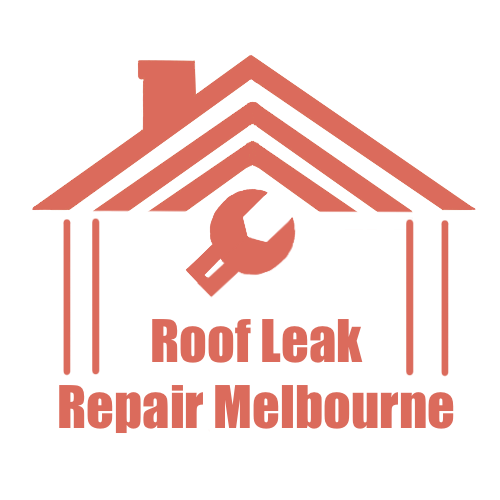Cottonox Leaks: What You Need To Know And How To Handle Them
Hey there! Let’s dive into the issue of Cottonox leaks, which has been a growing concern for users all around the world. This article is your go-to guide for understanding why these leaks happen, how to manage them, and most importantly, how to prevent them. If you're here because you're dealing with this challenge, you're in the right place.
Cottonox is a brand that's built its reputation on delivering innovative solutions that make our daily lives easier. But let’s face it—no product is perfect. One issue that’s been getting a lot of attention lately is the occurrence of Cottonox leaks. Not only does this affect how well the product works, but it also raises some serious concerns about safety and the environment. So, let's break it down and figure out what’s going on.
Our mission here is simple: We want to give you a clear, comprehensive look at Cottonox leaks. We’ll cover the causes, offer practical solutions, and share expert advice to help you tackle this problem head-on. By the time you finish reading, you’ll have the knowledge you need to protect your investment and keep your Cottonox product running smoothly.
Read also:Willow Harpers Onlyfans Journey A Story Of Growth Impact And Creativity
What’s Behind Cottonox Leaks?
Alright, let’s start by understanding exactly what we're dealing with. Cottonox products are designed to be tough and efficient, but leaks can still happen for a variety of reasons. These leaks might pop up due to flaws in manufacturing, improper use, or even just wear and tear over time. Each of these factors plays a role in why leaks occur, and it’s important to recognize them so we can address the problem effectively.
Pinpointing the Causes of Cottonox Leaks
So, what’s really causing these leaks? Here are the main culprits:
- Manufacturing Flaws: Sometimes, products leave the factory with small imperfections that might not seem like a big deal at first, but they can eventually lead to leaks.
- Improper Sealing: If the seals or gaskets aren’t installed correctly, it can compromise the product’s structure and cause leaks.
- User Mistakes: Mishandling or incorrectly assembling the product can really mess with its performance and lead to leaks.
- Worn-Out Parts: Over time, components like O-rings or seals can break down, which can result in leaks.
Why Cottonox Leaks Matter
Cottonox leaks can have a pretty big impact, from making the product less effective to creating potential safety hazards and environmental issues. It’s super important to tackle these problems as soon as you notice them to avoid bigger headaches down the road and to keep your product in good shape for as long as possible.
Spotting the Signs of a Cottonox Leak
Identifying the symptoms of a Cottonox leak is the first step in solving the problem. Here’s what you should look out for:
- You might see moisture or liquid pooling around the product.
- Unusual sounds, like dripping or hissing, coming from the device could be a red flag.
- A drop in the product’s efficiency or overall performance is another clear sign that something’s not right.
Regular inspections and routine maintenance are key to catching leaks early. The sooner you spot them, the faster you can fix them and prevent more serious issues from developing.
Stopping Cottonox Leaks Before They Start
Prevention is always better than a cure when it comes to managing Cottonox leaks. Here are some steps you can take to reduce the risk:
Read also:Ellie Nova The Voice Thatrsquos Taking The World By Storm
Getting Installation and Usage Right
Proper installation and following the manufacturer’s instructions are crucial for avoiding leaks. Always check the user manual for detailed guidance on setting up and operating the product correctly. It’s like having a blueprint for success!
Staying on Top of Maintenance
Regular checks are essential for spotting signs of wear or damage. If you notice any components starting to wear out, replace them right away. This not only keeps the product performing well but also extends its lifespan, giving you more bang for your buck.
Solving Cottonox Leaks with Smart Solutions
So, what do you do if you’re already dealing with a Cottonox leak? Here are a few options:
Using Sealants for Quick Fixes
A high-quality sealant can be a great temporary solution for minor leaks. But remember, addressing the root cause is the only way to truly solve the problem for good.
Calling in the Pros
If the leak is serious or too complex to handle on your own, it might be time to bring in the experts. Many manufacturers offer authorized repair services to make sure your product gets fixed properly and quickly.
Tackling the Environmental Impact of Cottonox Leaks
Cottonox leaks can pose environmental risks if they’re not dealt with responsibly. Leaked substances can contaminate soil and water, harming local ecosystems. Properly disposing of leaked materials according to environmental regulations is key to minimizing their impact on the planet.
Recycling and Safe Disposal Options
A lot of companies now offer recycling programs for their products, which is a great step toward sustainability. Check if the manufacturer has such a program and follow local guidelines for safely disposing of any hazardous materials. It’s all about being responsible and eco-friendly!
Learning from Customer Experiences
Customer reviews are a goldmine when it comes to understanding the prevalence and severity of Cottonox leaks. Many users have shared their stories online, offering valuable insights into this issue.
Common Themes from the Reviews
From the feedback we’ve seen, a few key points keep coming up:
- A lot of users are happy with the product overall but mention concerns about leaks.
- Some emphasize how important proper installation and maintenance are in preventing leaks.
- Others praise the manufacturer for being responsive to complaints and providing effective solutions.
What the Experts Say About Cottonox Leaks
Industry experts have weighed in on the Cottonox leak issue, offering informed recommendations. According to research published in the Journal of Product Safety, regular maintenance and following the manufacturer’s guidelines closely can significantly cut down on the chances of leaks happening.
What the Studies Tell Us
Research from top institutions highlights the importance of regular maintenance in preventing product failures. These studies show that educating users and providing clear instructions are crucial for ensuring products are used safely and effectively.
Understanding Legal and Safety Issues
Cottonox leaks can lead to legal and safety concerns, especially if they cause property damage or personal injury. It’s vital to know the laws and regulations related to product liability so you’re prepared.
Product Liability Laws Explained
Under product liability laws, manufacturers are responsible for making sure their products are safe and fit for their intended use. If a Cottonox leak causes harm, users might have legal options to seek compensation. Knowledge is power, right?
What’s Next for Cottonox Products?
The Cottonox brand is always pushing the envelope with new advancements, integrating cutting-edge technologies and designs to boost performance and safety. These innovations aim to reduce the risk of leaks and improve user satisfaction across the board.
Exciting New Features on the Horizon
Here’s what you can expect from future Cottonox products:
- Advanced sealing systems to minimize the risk of leaks.
- Premium materials designed to last longer and perform better.
- Smart sensors that can detect leaks early and alert users so they can take action.
Wrapping It Up: Taking Control of Cottonox Leaks
To sum it all up, Cottonox leaks don’t have to be a big headache if you have the right knowledge and tools. By understanding the causes, spotting warning signs early, and taking preventive measures, you can drastically reduce the impact of leaks on your product and the environment.
We’d love to hear your thoughts and experiences in the comments below. Sharing your story could really help others who are facing similar challenges. And don’t forget to check out our other articles for more tips on keeping your products in top shape and staying safe.
Table of Contents
- Exploring the Phenomenon of Cottonox Leaks
- Identifying the Root Causes of Cottonox Leaks
- Understanding the Consequences of Cottonox Leaks
- Recognizing the Signs of a Cottonox Leak
- Proactive Measures to Prevent Cottonox Leaks
- Addressing Cottonox Leaks with Effective Solutions
- Addressing Environmental Concerns Related to Cottonox Leaks
- Gleaning Insights from Customer Reviews on Cottonox Leaks
- Expert Perspectives on Cottonox Leaks
- Navigating Legal and Safety Considerations
- Anticipating Future Innovations in Cottonox Products
Article Recommendations


